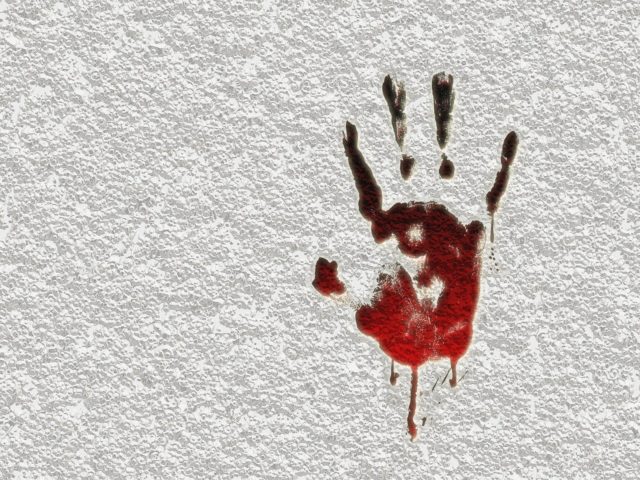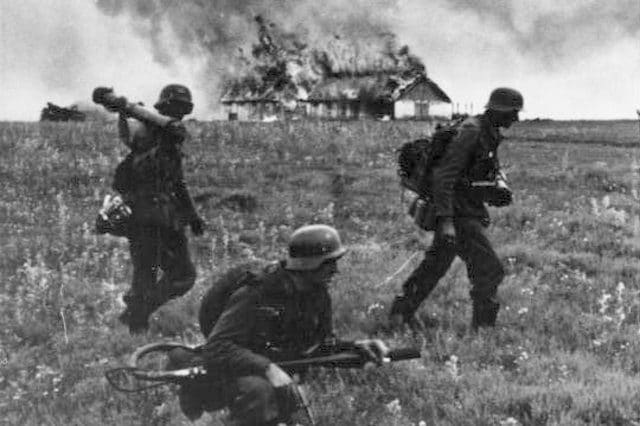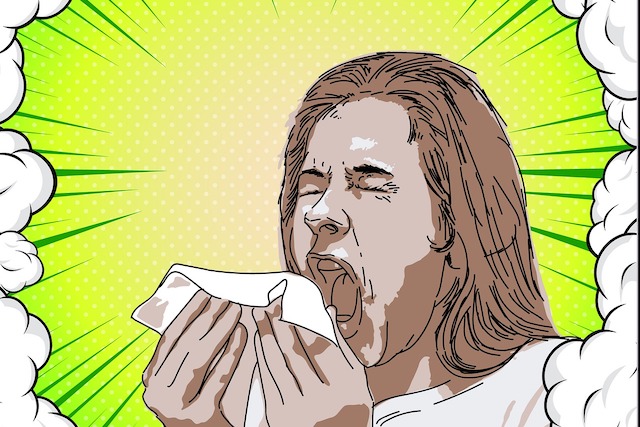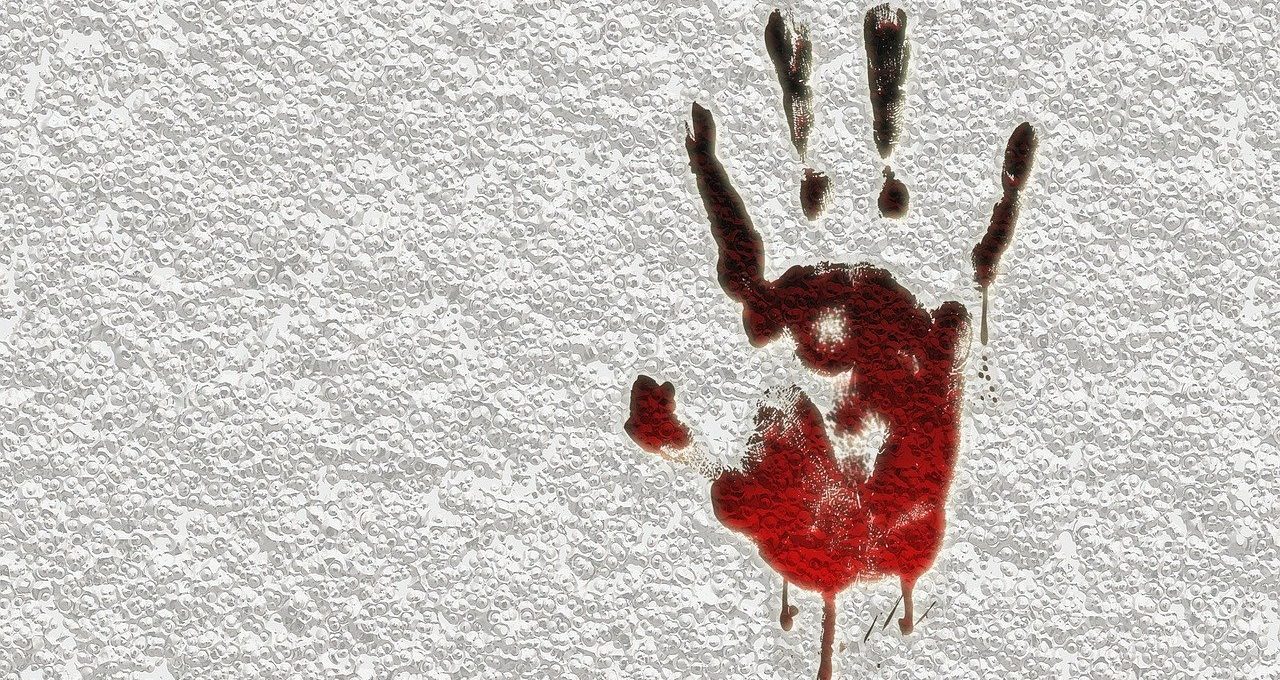Fear is one of the greatest motivators in the world. It can cause people to act irrationally, and it can also create paranoia and mistrust. And sometimes it just has really weird and unexpected effects that echo throughout history. All because someone was afraid of what might happen if they let things go a certain way.
10. Elevator operators got their jobs out of fear

Once upon a time, if you rode an elevator in a building, you simply stood there while someone else did the hard work of pushing buttons and opening doors. Elevator operators were a staple of any building that had an elevator, because of course they did. An elevator was a giant metal box suspended by a cable that could potentially rise hundreds of feet into the air. Obviously, someone with the skills had to operate it, right?
In 1945, elevator operators in New York City went on strike. It caused damage to the city and cost one hundred million dollars. Millions of people couldn't go to work. Because no one could operate the elevator. They were afraid to use it because they didn't know any better.
The elevator industry had to start training people. They had to learn to push the button themselves, and eventually they did. Tens of thousands Elevator drivers lost their jobs, which only existed because people were afraid to use the elevator themselves.
9. After September 11, the fear of flying led to an increase in the number of deaths while driving.

September 11, 2001 is a day that none of us who lived through it will ever forget. The attacks on the World Trade Center in New York City brought fear to America like nothing we had ever known. Airplanes were weaponized on American soil, and for a long time afterward no one knew what was safe. This had a profound effect on air travel and, in turn, automobile accidents.
Fear of new terrorist attacks shut down the airline industry for several days. Even when it reopened, people were reluctant to take to the skies again. As a result, more Americans drove than flew. This, in turn, led to a significant increase in traffic accidents and deaths. In fact, in the year since 9/11 there have been 1,600 more road deaths, than should have happened based on statistics, or about 242 additional deaths per month, depending on the datasets used.
8. The Danes were afraid of condemnation, so instead of committing suicide, they committed murder

If you are a religious person, you may think that suicide is a mortal sin and will condemn you to hell. Catholics believe this, and it is for this reason that in the 18th century, the very idea of suicide was extremely taboo. But that didn’t mean that people didn’t think about it as much as they do today. They just needed to come up with a way to escape damnation. This came in the form of murder.
If suicide was wrong, then the solution was to kill another , sentenced to death and executed after repenting of your sins. Sure, someone else would have to die, but your soul would be pure. Suicide left no time for repentance, so it was simply not an option.
In many cases, the unfortunate victim there will be a child murderers/suicides or maybe just someone random. Certainly no one who has done anything deserving of death. According to Lutheran beliefs As long as someone confessed their sins and repented shortly before death, they had no chance of sinning again and could look forward to heaven. So their fear of doing something wrong led them to believe that taking an innocent life was the right thing to do. No word on whether God considered it a sin to use a dogmatic loophole.
7. Eugene Lazowski scared the Nazis with fake typhus

We know that during World War II there were a handful of people who collaborated with the Nazis, who secretly worked against them and did everything they could to save Jewish lives. One of these people was the Polish doctor Eugen Lazowski, who preyed on Nazi fears to save 8,000 villagers, including the Jews who were hiding among them.
Lazovsky was forbidden to treat Jews, but he did it anyway, and in the midst of a typhus outbreak, his colleague discovered something interesting. If he had introduceddead strain of typhus the patient would not get sick, but would still test positive for it.
Typhus was killing thousands of people, and the Nazis were afraid it would spread. So Lazowski came up with a plan. He would create a fake epidemic by infecting thousands of locals with a dead strain of typhus. They would inject people at a rate that would mimic a real typhus epidemic , and sent patients to other cities to have their blood tests confirmed, giving the whole scheme legitimacy. As a result, the Nazis quarantined more than a dozen cities, and they remained quarantined until liberation.
At one point, the whole plan almost fell apart because there were so many cases but no deaths reported. Lazowski threw a party with the Gestapo who came to investigate, keeping them drunk and well-fed enough that they didn't care about the inconsistencies.
6. The Baker's Dozen exists because bakers were afraid of rapidly changing customers.

Dozen means 12, which comes from a French word that itself comes from Latin, and all means 12. So it is puzzling that there is also a baker's dozen, but that means 13.
The reason for adding an extra person to the dozen bakers is strictly based on fear.
This goes back to bakers in the Middle Ages . The price of bread was directly linked to the price of wheat. A baker could not legally rip you off by giving you a smaller loaf but charging the same price. If they undervalued a customer, they punishment awaited .
The law, called the Assize of Bread and Ale, was revived in 1266 by Henry III. If a baker underweighed his bread, he could be fined or even flogged. So when bakers sold loaves by the dozen, they would add an extra loaf to ensure that no one was accidentally replaced. If they sold a loaf individually, the customer might get an extra crust.
5. The fear of losing beer was the reason the Pilgrims settled at Plymouth Rock.

Beer has been an important part of civilization for many years. In fact, it has been argued that civilization exists thanks to beer . So make no mistake, people take this seriously today, and they took it much more seriously in the past. So seriously, in fact, that fear of being left without money was a major factor in the decision to settle in Plymouth Rock .
You have to remember that getting anything to drink was a lot harder when America was first settled than it is today. Safe, clean water was not far from the kitchen faucet, and a nutritious drink was even harder to find. Beer solved both problems. these problems . For many, it was like liquid bread. Even the Puritans didn't mind beer when they could turn up their noses at wine. And if the beer ran out or went bad, the possibility of dying of dehydration or starvation was all too real.
4. The speed of the motorcycle is limited due to fear of getting out of control

Have you ever heard a motorcycle roaring down the road and wondered how fast it was going? Today, the answer is probably 186 mph. Or less. But it wasn’t always that way. There was once a speed war between motorcycle manufacturers, and it was only out of fear of what would happen if it went unchecked that the big companies agreed to impose a 186 mph speed limit on all production motorcycles.
In the 1990s, the Kawasaki Ninja ZX-11 could reach speeds of up to 175 miles per hour . It was the fastest motorcycle in the world. Until Honda released the 179 mph Super Blackbird. Suzuki rushed into battle with its Hayabusa, which can reach speeds of 193 mph Then Kawasaki came back with the ZX-12R, which was rumored to be capable of 200 mph. Even before the bike was released, people were worried. They feared that these incredible speeds would lead to death and chaos if the companies continued to out-do each other. Thus was born what is known as the “Gentleman’s Agreement.”
While not all parties admit it, BMW, Honda, Kawasaki and Suzuki are said to have come together to agree to limit their motorcycles to 300 km/h, or 186 mph. A number of European manufacturers have since ignored that number, but the Japanese companies still limit their road bikes to 186.
3. Chicago gangs feared the break-in would put them out of business

Remember the War on Drugs? Is it still going on? Maybe. But there was a time when the arrival of crack on the streets of America’s major cities was still big news, as it seemed to have reached epidemic proportions. But Chicago was slower to give in than other cities, for a very unexpected reason.
Although drug dealers eventually made their way throughout the city, Chicago was believed to have kept drugs at bay for several years due to the influence of large drug lords and cartels. Gangs dealing in powder cocaine and heroin refused to allow crack to gain a foothold for fear of losing business. Small-time dealers were thought to be pose a threat for their overall control over the drug trade in the city. In fact, it has been estimated that 90% crack It was made in the city at home and was not intended for citywide distribution.
2. The blessing after sneezing comes from the fear of losing the soul

You're in the kitchen seasoning a steak you're about to grill when you suddenly stuff your nose with pepper and sneeze angrily. Your friend in the other room says, "Bless you," and your day goes on as usual. Whether you realize it or not, your friend may have just saved your soul from the Devil. At least in theory.
The habit of saying "bless you" or "God bless you" after sneezing dates back to ancient times. That's what they did even Romans and Greeks . It has long been believed that sneezing risks letting your soul out of your body, leaving you an empty shell of filth.
There was a fear that when you shot a sneeze out of your soul, that sneaky old devil Satan would take the opportunity to sneak in inside you and settle. Thus, blessing someone was a method of protection against such Stygian migration. Once blessed, the fear of being possessed and soulless disappeared.
1. Fear thwarted the plan to assassinate Hitler

One of the most popular thought experiments of the last century was "Little Hitler" . If you could go back in time, would you kill Hitler as a baby? It even appeared in Deadpool . People argue both sides of the issue. But that's all theoretical. And when could we really kill Hitler? Why hasn't it ever happened? It wasn't because no one ever had an idea. There was a plan, but it was abandoned out of fear.
During the war, several plans were hatched to eliminate Hitler, one of which was Operation Foxley . Winston Churchill himself was a proponent of this, and on paper the plan was fairly simple, even if the logistics were difficult to work out. A sniper would be sent to the Bavarian Alps, where Hitler had gone to get away from it all. Intelligence reported that he was taking daily walks, so the sniper just shot him on a walk.
The plan was never implemented because of fear of what would happen next. The Allies believed that Hitler was actually a pretty terrible strategist and that many of their successes were due to how poorly the man commanded his troops. They feared that Hitler's death would open the door to more competent leader , and this will change the course of the war against the Allies.














Оставить Комментарий